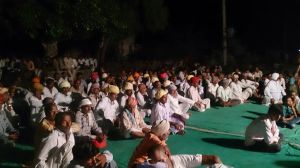In the movie Live from Bahghdad, CNN’s producer Robert Wiener (played by Michael
Keaton), covering Iraq bombings by the US in 1991, likens reporting from enemy lines to “moonwalk for a journalist”. In pursuit of the journalistic moonwalk to tell the truth, free voices are silenced, dissent smothered, opinions manipulated and messengers
brazenly implicated by dictators and democratic demagogues alike. Has the onslaught
against the Fourth Estate become more frightening? Experts are unanimous in affirming an increasing hostility against media. Continue reading
Category Archives: Oppression
Journalists face rising hostility across the world
StandardReporting from enemy lines, in words of CNN’s producer Robert Wiener in the film, Live from Baghdad, is like a “moonwalk for a journalist.”
However, in pursuit of the journalistic moonwalk, free voices are silenced, opinions manipulated and messengers brazenly implicated by dictators and democratic demagogues alike. To make matters worse, there is an increase in hostility against the media across the world.
for more plz visit:
http://www.asianage.com/india/journalists-face-rising-hostility-across-world-672
Dalit Students and Journalists – from Classroom to Newsroom (Kafila)
StandardThe aim of the press is to shape public discourse on political, economic and social issues.
Habermasian public sphere or imagined communities (Benedict Anderson) do not factor in
the caste question.
For more you can go to
Religious congregation and misogyny in Rajasthan
StandardIn post-independence India, the December 16 gang rape case shook the conscience of India and evoked mass outrage in the form of street protests across India. A barrage of subsequent analyses focused on the legal and preventive mechanism rather than looking at the social, cultural and religious dimensions which spawn and reinforce anti-woman attitude. Pedagogy, parenting, schools, peers, teachers, curriculum books are some of the channels which shape a person’s understanding of society vis-à-vis women’s rights. One more contributing channel in this regard is community and religious gatherings.
When Metros Sneeze Media Cough (Published in The Hoot)
StandardWhen Metros Sneeze Media Cough
The despicable crime of rape is indeed a shameful act and should be condemned severely. The demonstration in Delhi and other metropolises punctuated by 24*7 news channels against the Delhi-rape incident have made me think on the way in which other rape incidents are registered in the annals of media archives.
Northeast and AFSPA
StandardRepeal AFSPA ASAP
Acting on a writ petition, the Supreme Court recently issued a notice to the central government to repeal the Armed Forces Special Powers Act (AFSPA), 1958 from Manipur. This is a welcome judgement from the apex court.
The PIL, filed on October 2, alleged that 1,528 people in Manipur had been victims of extra-judicial killing since 1979 by the armed forces and the state police.
This has been a long battle waged by the northeast through sit-ins, hunger strike (particularly by Irom Chanu Sharmila who has fasting since 2000), and peaceful rallies. Now, the northeast can expect the Supreme Court to strike the colonial law, starting from Manipur.
The AFSPA was clamped on the northeast states in 1958. The Act, which came into force in 1958, enables security forces to search, detain and kill anyone who is suspected to work in contravention of law. Therefore, it has been despised by civil society and human rights groups alike. The most vocal criticism came from Christof Heyn, UN’s Special Rapporteur on extrajudicial, summary or arbitrary executions. He said that the act was “a symbol of excessive state power” that “clearly violates international law.”
People are disenchanted with the Act as it is similar to the emergency period, wherein Fundamental Rights– Article 21 (right to life) and Article 22 (protection against arrest)–have been circumscribed. Moreover, children, the elderly and women have been the worst affected for they are armless.
Some of the most infamous massacres under the AFSPA- Oinam massacre in 1987 (Operation Bluebird) killing 15 people and injuring another hundred, the Tonsen killing in 1999 and the Malom massacre in 2000- have undermined the Indian democratic credentials.
International pressure has been mounting on India to scrap the law after it signed the UN convention on Human Rights in 1991 and the Vienna Declaration and Programme of Action, 1993. Try to save its face, India has closed its doors for human rights activist for its alleged crime under the Act.
Social scientists call this arbitrary use of power “lawless law and antithetical to democracy.” True, the Act has crippled the life of people in the northeast and reduced them to the mercy of the armed forces.
As the Supreme Court, in the climate of fear and prejudice, is the only refuge for people distraught with the state, the northeasterners can expect good judgment.
